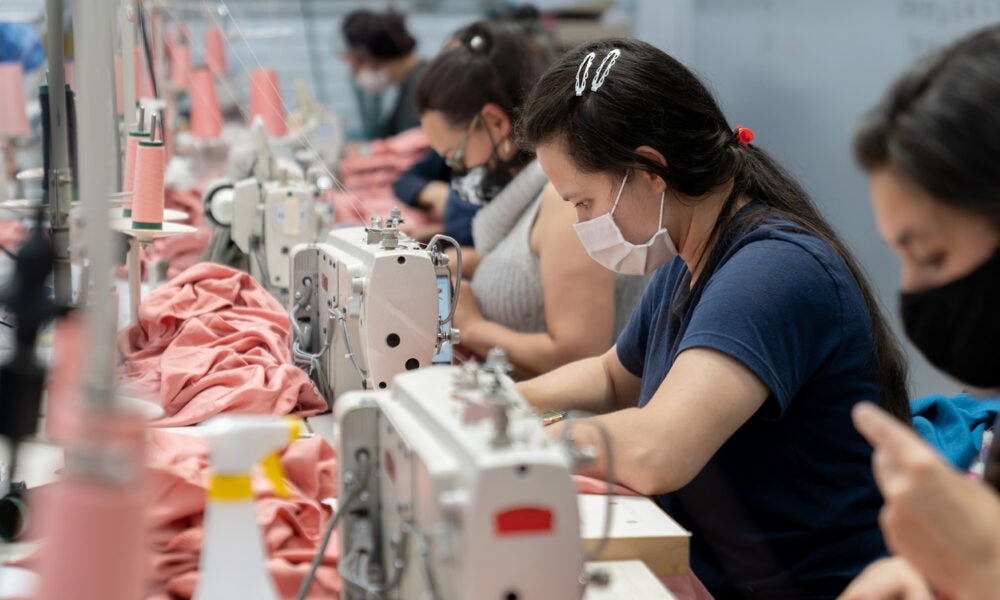How deep must you go into your supply chain to understand where your risk lies? A single product may have dozens of suppliers at every level contributing parts and materials. To gain a greater insight into the environmental, social, and governance (ESG) impact of your products, your due diligence must extend beyond direct suppliers. Here’s how you can gain that visibility into your supply chain to reduce your risk, make better business decisions, and have a positive impact on the world.
The Hidden Risks in Your Supply Chain
When manufacturers think about supply chain risk, the first thing that comes to mind is their direct suppliers. After all, it is a logical first step. Manufacturers know their direct suppliers — it’s where they have the greatest influence, and where standard due diligence tools work well. Yet, taking this approach does not address the risks further down the supply chain.
As I noted in a 2020 United Nations Global Compact report I co-authored, human rights abuses and labor rights violations increase significantly in the lower tiers of the supply chain. At the second tier of the supply chain, in-depth assessments identify 18 percent more violations than with direct suppliers. The severity of violations increases further down the supply chain, with third-tier suppliers having the highest number of critical issues on average.
The Challenges of Navigating Multi-Tiered Supply Chains
Gaining visibility into a multi-tiered supply chain presents a number of challenges. Multi-tiered supply chains are highly complex, with many companies contributing to a single product. There can be interrelationships between tiers, too, which adds to the complexity. Even with direct suppliers, supply chain data resides in multiple systems, locations, and departments of the same company.
Beyond direct suppliers, visibility becomes even murkier. Manufacturers frequently lack deeper insight into their indirect suppliers.
To learn how you can minimize human rights abuses within the supply chain, visit our resource on indirect supplier monitoring to gain deeper visibility into your risks.
Companies Must Take Action Against Human Rights Abuses
Due diligence on indirect suppliers is no longer a nice-to-have but a must-have thanks, in part, to two new laws: the Supply Chain Due Diligence Act (SCDDA) in Germany and the Uyghur Forced Labor Prevention Act (UFLPA) in the U.S.
The SCDDA comes into effect on January 1, 2023. It applies to all sectors, and its first stage requires German companies with 3,000 or more employees to prevent, or at the very least, take all efforts to minimize human rights violations in their supply chains. The German law explicitly includes indirect suppliers by requiring that companies carry out the same level of due diligence when they have substantiated knowledge that a violation of human rights-related or environment-related obligations may occur.
The UFLPA comes into effect on June 21, 2022. This law prohibits the imports of products made wholly or in part in China’s Xinjiang Uyghur Autonomous Region (XUAR). The law also bans imports made by oppressed minorities in any part of China. If a single component in a product comes from the XUAR, the entire product is at risk of detention by U.S. Customs and Border Protection personnel.
These two new laws join existing legislation in other jurisdictions, such as those regarding conflict minerals, that aim to decrease human rights abuses across the entire supply chain. To comply with these laws, and general market expectations, manufacturers must perform due diligence deep into their supply chains.
Going Deeper Into Your Supply Chain
To understand your supply chain risks stemming from human rights violations, you must go deeper into your supply chain. But how do you collect human rights data from suppliers with whom you don’t have a direct commercial relationship? You use tools designed to pull information from consecutive tiers of the supply chain going as far down the chain as possible.
Examples of such tools are industry-standard questionnaires that are built to be cascaded down supply chains and are capable of being shared across multiple platforms, including the Assent Supply Chain Sustainability Platform. Such tools not only provide deep visibility into supply chains, they also help minimize supplier survey fatigue. Three industry standard surveys commonly used by manufacturers stand out in this regard — namely, the Conflict Minerals Reporting Template (CMRT), the Extended Minerals Reporting Template (EMRT), and the Slavery and Trafficking Risk Template (STRT).
To derive the most benefit from your due diligence efforts, it is important to also take the following steps, according to the UN Global Compact:
- Integrate ESG responsibility criteria into the supplier selection process
- Move beyond audits to invest in training and capacity building for suppliers so they can conduct business responsibly
- Use technologies to acquire and manage data related to human rights in the supply chain
In the next section, we’ll explore how manufacturers can use technology to reduce their supply chain risks.
Reduce Supply Chain Risks With Assent
Assent deep-maps the supply chain by using efficient workflow automation and risk mitigation capabilities. It allows you to monitor suppliers, parts, products, practices, and regulations, so you can comply with a variety of requirements.
With Assent, you can identify high-risk suppliers, even those deep into your supply chain. That knowledge allows you to prioritize them for further screening and/or training on the risks of human rights violations. In addition, deep supply chain transparency helps you avoid disruptions, which gives you insights into individual supplier performance across all areas of risk. Moreover, deep-mapping the supply chain lets you prioritize suppliers with a strong ESG track record.
Assent’s solution gathers defensible due diligence data with disclosures based on a deep understanding of regulations, materiality, and best practices. Our solution works to reduce the risks of human trafficking and slavery facilitates compliance with a variety of requirements and regulations. To learn more about how Assent can help you, Contact us.










